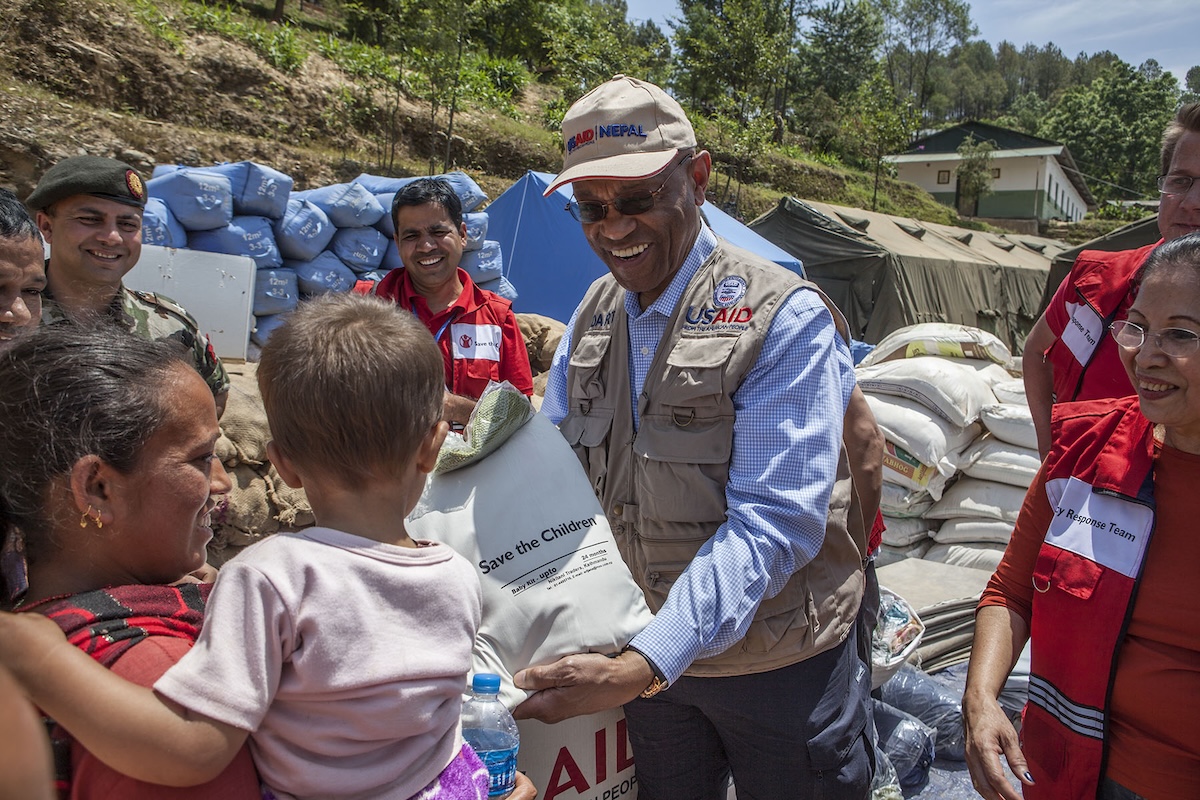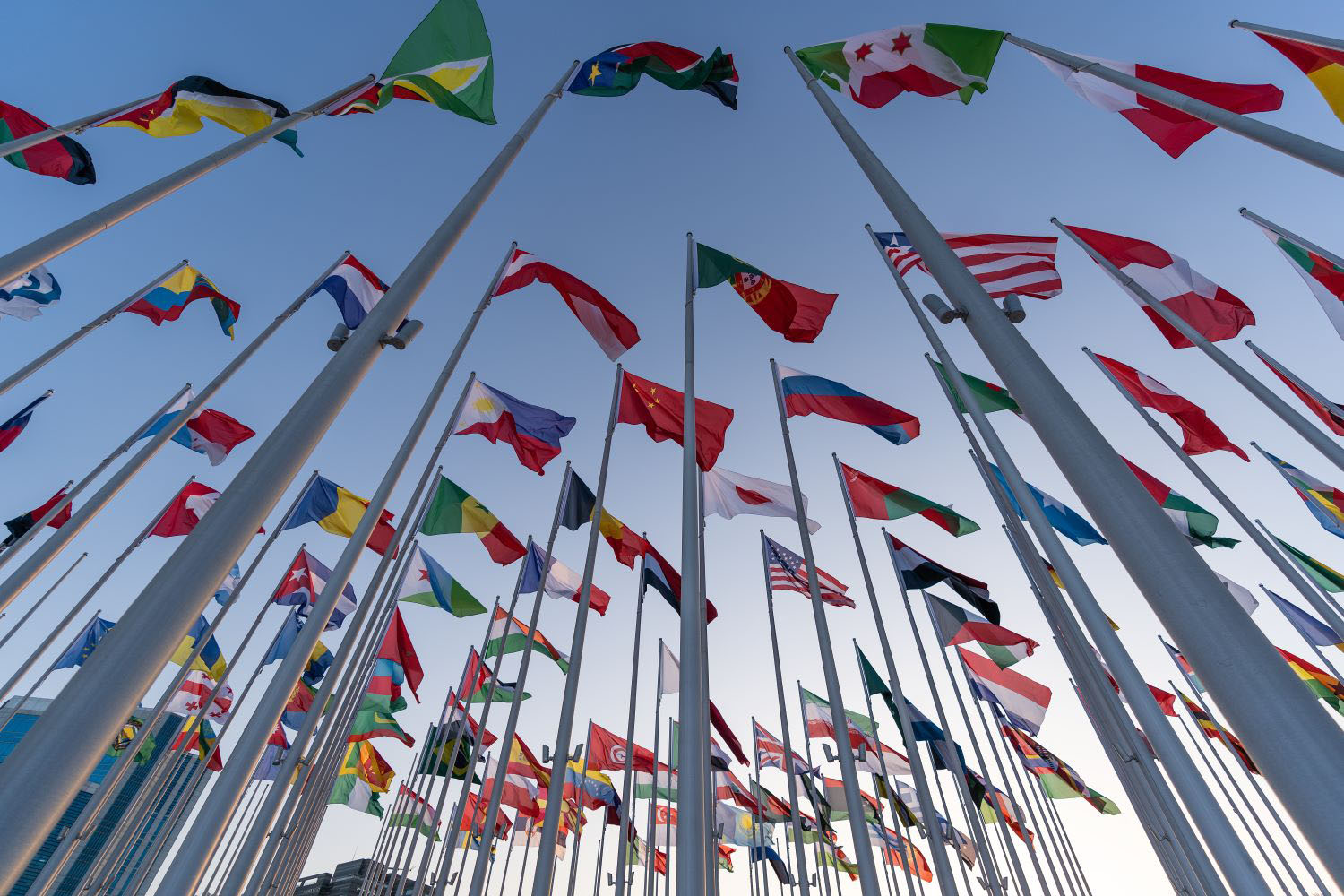
https://www.cgdev.org/blog/usaid-being-dismantled-when-world-needs-it-most
On Friday, January 31, USAID was an independent government agency. Over the weekend, USAID staff lost access to government accounts and were told not to come to work. On Monday, the headquarters were closed and Secretary Rubio was appointed Acting USAID Administrator. The rationale, according to a State Department press release, is that “significant portions of USAID funding are not aligned with the core national interests of the United States.”
Anyone who cares about due process, US standing in the world, or global poverty should be outraged by the precipitous decision to shutter USAID. The actions taken over the last few days have been shocking, not just for their ham-handed execution and absence of a considered, rational debate over the future of the agency, but for the animus that seems to be driving them. Like any large bureaucracy, USAID has faced charges of inefficiency and bloat and has scope to reform. But it is not a “viper’s nest of radical-left Marxists who hate America” much less a criminal organization, as Elon Musk said over the weekend.
USAID staff are dedicated to improving the lives of the world’s most vulnerable people by providing food to starving populations, bringing electricity to poor, rural communities, and championing the fight against human trafficking. USAID is a leader in global health, funding programs to combat HIV/AIDS, malaria, and tuberculosis. In some cases, USAID support literally means the difference between life and death.
The decision to take a wrecking ball to USAID could not have come at a worse time. Humanitarian needs are soaring in the context of record funding gaps. In 2024, the UN reported that, for the second consecutive second year, it met less than half of its humanitarian goal of nearly $50 billion. The outlook for 2025 is bleak, especially for countries like Yemen, Sudan, Ethiopia and Afghanistan that count on USAID for most of its bilateral aid. USAID should be working to avert famine in Sudan, contain a major health crisis in the DRC, and reinforce a fragile peace in Syria and Gaza, all goals that are in the U.S. interest.
Instead, most USAID programs have been halted, with exceptions for life-saving humanitarian assistance, defined as “core life-saving medicine, medical services, food, shelter, and subsistence assistance, as well as supplies and reasonable administrative costs as necessary to deliver such assistance.” But this guidance is open to interpretation—can USAID still provide nutrition to at-risk children if they are not on the brink of famine? And what are “core” life-saving medicines?
PEPFAR, a critical program in the fight against AIDS/HIV, was granted a limited waiver, with several notable exclusions: it is not able to conduct cervical cancer screening, malaria prevention, the treatment of tuberculosis and polio, maternal and child health, or efforts to curtail outbreaks of Ebola, Marburg, and mpox.
These exceptions have been made in the context of a 90-day “pause” on foreign aid, which was announced on January 25 with the aim of reviewing all programs for “programmatic efficiency and consistency with United States foreign policy.” The reviews are to be conducted “under guidelines provided by the Secretary of State, in consultation with the Director of OMB,” which have yet to materialize. Ominously, Secretary Rubio asserted that insubordination by USAID employees “makes it impossible to conduct a sort of mature and serious review.” This begs the question—is the “pause” in fact a legitimate effort to assess US foreign assistance programs, or a ploy for shutting them down?
Disclaimer
CGD blog posts reflect the views of the authors, drawing on prior research and experience in their areas of expertise. CGD is a nonpartisan, independent organization and does not take institutional positions.
Image credit for social media/web: Kashish Das Shrestha for USAID
Topics
On Friday, January 31, USAID was an independent government agency. Over the weekend, USAID staff lost access to government accounts and were told not to come to work. On Monday, the headquarters were closed and Secretary Rubio was appointed Acting USAID Administrator. The rationale, according to a State Department press release, is that “significant portions of USAID funding are not aligned with the core national interests of the United States.”
Anyone who cares about due process, US standing in the world, or global poverty should be outraged by the precipitous decision to shutter USAID. The actions taken over the last few days have been shocking, not just for their ham-handed execution and absence of a considered, rational debate over the future of the agency, but for the animus that seems to be driving them. Like any large bureaucracy, USAID has faced charges of inefficiency and bloat and has scope to reform. But it is not a “viper’s nest of radical-left Marxists who hate America” much less a criminal organization, as Elon Musk said over the weekend.
USAID staff are dedicated to improving the lives of the world’s most vulnerable people by providing food to starving populations, bringing electricity to poor, rural communities, and championing the fight against human trafficking. USAID is a leader in global health, funding programs to combat HIV/AIDS, malaria, and tuberculosis. In some cases, USAID support literally means the difference between life and death.
The decision to take a wrecking ball to USAID could not have come at a worse time. Humanitarian needs are soaring in the context of record funding gaps. In 2024, the UN reported that, for the second consecutive second year, it met less than half of its humanitarian goal of nearly $50 billion. The outlook for 2025 is bleak, especially for countries like Yemen, Sudan, Ethiopia and Afghanistan that count on USAID for most of its bilateral aid. USAID should be working to avert famine in Sudan, contain a major health crisis in the DRC, and reinforce a fragile peace in Syria and Gaza, all goals that are in the U.S. interest.
Instead, most USAID programs have been halted, with exceptions for life-saving humanitarian assistance, defined as “core life-saving medicine, medical services, food, shelter, and subsistence assistance, as well as supplies and reasonable administrative costs as necessary to deliver such assistance.” But this guidance is open to interpretation—can USAID still provide nutrition to at-risk children if they are not on the brink of famine? And what are “core” life-saving medicines?
PEPFAR, a critical program in the fight against AIDS/HIV, was granted a limited waiver, with several notable exclusions: it is not able to conduct cervical cancer screening, malaria prevention, the treatment of tuberculosis and polio, maternal and child health, or efforts to curtail outbreaks of Ebola, Marburg, and mpox.
These exceptions have been made in the context of a 90-day “pause” on foreign aid, which was announced on January 25 with the aim of reviewing all programs for “programmatic efficiency and consistency with United States foreign policy.” The reviews are to be conducted “under guidelines provided by the Secretary of State, in consultation with the Director of OMB,” which have yet to materialize. Ominously, Secretary Rubio asserted that insubordination by USAID employees “makes it impossible to conduct a sort of mature and serious review.” This begs the question—is the “pause” in fact a legitimate effort to assess US foreign assistance programs, or a ploy for shutting them down?
Disclaimer
CGD blog posts reflect the views of the authors, drawing on prior research and experience in their areas of expertise. CGD is a nonpartisan, independent organization and does not take institutional positions.
Image credit for social media/web: Kashish Das Shrestha for USAID
Topics
- 644 reads











